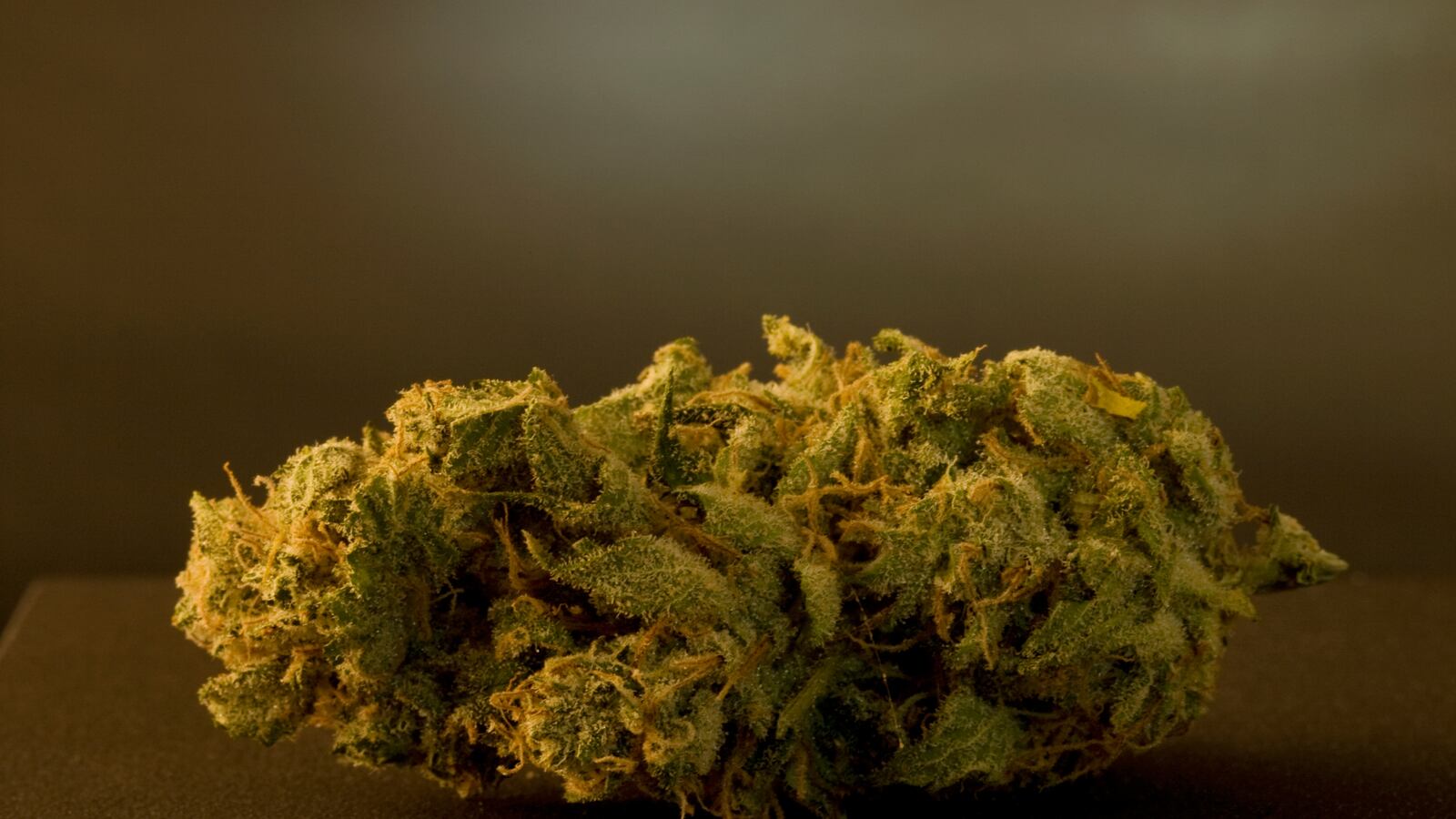Nikita was diagnosed with terminal cancer and she was in pain. She wouldn’t eat, barely moved and constantly whimpered. Removing the tumors from her body didn’t do much, nor did the medicine prescriptions she was given—but what did help was marijuana.

“I’d exhausted every available pharmaceutical pain option, even steroids. At that point, it was a quality of life issue, and I felt like I’d try anything to ease her suffering,” her doctor, Douglas Kramer, told a prominent medical journal. After consuming small amounts of marijuana, Nikita’s appetite returned and she began greeting Kramer at the door again. Kramer says the weed gave Nikita six extra weeks of life.
Now, doctors prescribing marijuana to patients battling cancer is nothing new. But there’s a wrinkle in this case. Nikita is a Siberian husky. Dr. Kramer is a veterinarian. And the medical journal in which he describes the case is the Journal of American Veterinary Medicine Association.
Kramer, known widely as the Vet Guru runs his own mobile practice that focuses on pain management. He’s part of a growing movement of people and experts who believe marijuana can be a cure for multiple pet medical conditions ranging from anxiety to appetite renewal to basic pain relief.
Peruse the Internet and you will find many a story of cats, dogs and even horses restored by marijuana treatment. Getting a pet high may have once been considered a bad party gag. But now some owners consider it a legitimate treatment option for some animals and the change is likely attributable to a change in acceptance of marijuana overall. This year, for the first time, a majority of Americans support cannabis legalization.
“With some states approving and legalizing the use of marijuana for humans it drives this conversation and pet owners’ curiosity as to whether or the not the use of marijuana for their pet may be beneficial,” said David Kirkpatrick, spokesperson for the American Veterinarian Medical Association, which represents over 84,000 working vets. “I think some pet owners who have used medical marijuana for their pets have said it has done what they consider to be wonders for their particular pet. But whether or not that can be scientifically justified at this point is unclear.”
Research on the medical benefits of marijuana for animals is all but non-existent due to marijuana’s current classification as an illicit drug. Because law prohibits vets from prescribing marijuana to animals, it’s near impossible for vets to conduct tests on animals’ reactions to the drug at universities and research centers.
There are also skeptics. Many veterinarians refuse to go on record to discuss the topic of marijuana for animals because of lacking scientific evidence. Others wholeheartedly believe marijuana offers no medical assistance, citing instances of pet overdose on cannabis as proof—something vets typically see when an animal accidentally ingests the plant. A recent study that came out this spring found that instances of animal toxicity cases quadrupled between 2005 and 2010, strongly correlating with the growing amount of registered medical marijuana users.
“There will have to be some proven scientific basis for marijuana’s use in pets, and proving that will come down to an all encompassing legality change where people can use cannabinoids for testing, “ said Dr. Patrick Mahaney, a veterinarian at California Pet Acupuncture and Wellness. He estimates that once federal laws lower the classification of marijuana, and there’s reliable proof to back it up, marijuana could become a viable alternative medicine for pets within the next ten years.
“Things have come a long way. I’m a certified veterinarian acupuncturist and the patients I see have chronic pain,” Mahaney continued. “When I came out of school 14 years ago acupuncture was not a commonly accepted practice in pets—we are changing as an industry and veterinarians are recognizing that we need to do more for our pets than just give vaccines.”






